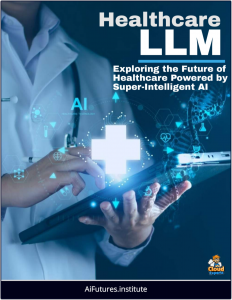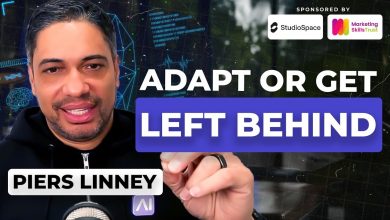 In the quiet suburbs of north London, where rain-slicked streets wind past modest brick houses, a young boy named Demis Hassabis spent his evenings not with toys or television, but hunched over a chessboard.
In the quiet suburbs of north London, where rain-slicked streets wind past modest brick houses, a young boy named Demis Hassabis spent his evenings not with toys or television, but hunched over a chessboard.
Born in 1976 to a Greek Cypriot father and a Chinese-Singaporean mother, Demis was a prodigy from the start.
At just four years old, he learned the game from his grandfather, and by eight, he was competing in national tournaments, his small hands moving pieces with the precision of a master. Chess wasn’t just play; it was a puzzle, a battlefield of infinite possibilities where every move revealed hidden patterns in chaos. “I always loved solving problems,” he later recalled, “figuring out how the world ticks.”
But Demis’s mind hungered for more than checkmates. By his teens, he was devouring books on neuroscience and artificial intelligence, dreaming of machines that could think like humans—or better. He skipped grades, entered Cambridge University at 17 to study computer science, and soon founded his first company: a video game studio called Elixir Studios.
There, amid the pixelated worlds of *Theme Park World* and *Republic: The Revolution*, he glimpsed the power of simulation—virtual realities where rules could be bent, tested, and perfected. Games, he realized, were the ultimate training ground for intelligence, a way to teach machines to learn from trial and error. Yet, even as success came,
Demis felt a pull toward something grander: not entertainment, but enlightenment. He sold the studio and pursued a PhD in cognitive neuroscience at University College London, mapping the brain’s own wiring to uncover how memory and imagination intertwined.
It was 2010 when Demis co-founded DeepMind Technologies, a scrappy startup in a converted London pub, with a audacious goal: to build artificial general intelligence (AGI), machines that could match human smarts across any domain.
Backed by visionaries like Elon Musk, the team dove into reinforcement learning—teaching AI to play Atari games blind, from pixels alone. But Demis’s eyes were on biology. Proteins, the workhorses of life, fold into intricate 3D shapes that dictate everything from health to disease.
For decades, scientists had toiled in labs, using X-rays and electron microscopes to puzzle out these structures—a process that could take years per protein. “What if AI could do this in hours?” Demis wondered. In 2016, Google acquired DeepMind for $500 million, infusing it with vast resources, but Demis stayed true to his mission: AI for humanity’s toughest challenges.
The breakthrough came with AlphaFold. Launched in 2018 and refined through iterations, this AI system cracked the “protein folding problem,” predicting structures with atomic accuracy.
By 2020, AlphaFold had mapped nearly every known human protein—equivalent to “a billion years of PhD work,” as Demis put it—unlocking doors to drug design that had long been bolted shut. In October 2024, the Nobel Prize in Chemistry crowned Demis, John Jumper, and David Baker for this feat, a rare honor for an AI pioneer. “This is the No. 1 most beneficial application of AI out there,” Demis declared, his voice steady but eyes alight with the weight of it all.
Curing Cancer
Cancer, that relentless thief of lives—claiming 10 million souls a year—loomed large in Demis’s vision. Tumors arise when proteins misfold or mutate, hijacking the body’s machinery.
Traditional drug discovery? A grueling decade-long slog: hypothesize, test, fail, repeat, at a cost of billions and a 90% failure rate. Demis saw a different path. In 2021, he spun out Isomorphic Labs from DeepMind, an Alphabet company with a singular mission: reimagine drug discovery from first principles, using AI to “solve all disease.”
No wet labs for pipettes and petri dishes; instead, a fortress of code and compute in London and Lausanne, where AlphaFold 3 now simulates not just proteins, but their dances with DNA, RNA, and drug-like molecules.
Under Demis’s dual helm—CEO of both DeepMind and Isomorphic—the lab forged alliances with titans: Novartis and Eli Lilly, pouring in up to $3 billion in milestones for AI-designed small molecules targeting oncology, immunology, and beyond.
By early 2025, a $600 million infusion from Thrive Capital turbocharged the effort, swelling R&D fourfold as Isomorphic’s models generated novel compounds in days, not years—binding precisely to cancer’s rogue proteins, halting their spread in virtual trials before a single vial is mixed. “We’re looking at oncology, cardiovascular, neurodegeneration—all the big disease areas,” Demis told the Financial Times, his tone matter-of-fact yet laced with quiet fire. “By the end of this year, we’ll have our first drug.”
In September 2025, just weeks ago, he doubled down on Bloomberg: AI could slash discovery timelines from years to months, ushering drugs into clinics by 2026.
Demis doesn’t stop at cures; he dreams of prevention—a “virtual cell” simulating life’s every twitch, spotting cancer’s spark before it ignites. At 49, knighted as Sir Demis, he paces his office overlooking the Thames, chessboard nearby, pondering the next move. Critics whisper of hype, of trials yet to prove the promise. But Demis, ever the prodigy, sees patterns where others see noise.
“Biology may turn out to be the perfect regime for AI,” he muses. In his hands, superintelligent machines aren’t just tools; they’re the bridge to a world where cancer is not a sentence, but a solved equation—a future where humanity, augmented by AI, claims victory over its oldest foes. And in that vision, the boy from north London finds his checkmate.



